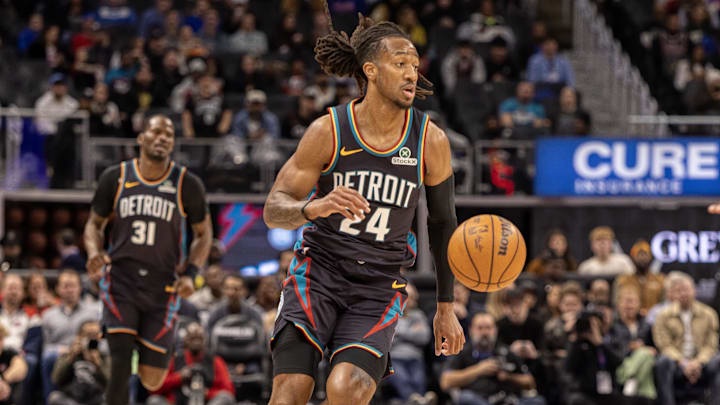Arguably, no team in the NBA embraces the "next man up" mentality quite like the Detroit Pistons. Since the start of the season, the Pistons have dealt with a slew of injuries to key players, but have consistently found ways to overcome absences. On Wednesday, that hit a different level as the Pistons defeated the Bulls without Cade Cunningham, Jalen Duren, Tobias Harris, Ausar Thompson, and Isaiah Stewart to pick up their eighth straight win. The two stars of the show were Paul Reed and Daniss Jenkins.
This was the second straight game where Jenkins has played significant minutes and was one of the best players on the court. After hitting the game-tying 3-pointer at the buzzer against the Wizards on Monday, Jenkins put up an impressive 18 points and 12 assists in 40 minutes as the main offensive engine against the Bulls. He has shown very clearly that he belongs, and the Pistons have to sign him to a guaranteed deal before it's too late.
Pistons Can't Waste Any More Time Before Signing Daniss Jenkins to a Guaranteed Deal
Jenkins is currently on a two-way deal, expected to spend time between the Pistons and Motor City Cruise. Getting this type of production from a player on a two-way contract is obviously incredible for the Pistons, but this is not a sustainable situation.
Two-way players can only be active for 50 regular-season games in the NBA and can't play in the playoffs. The Pistons could benefit from Jenkins' shot creation and playmaking, even when the rest of the team is healthy, and would benefit greatly from having him on the 15-man roster.
The problem here is that the Pistons just filled their final guaranteed roster spot last week by signing Isaac Jones. This was certainly a questionable signing since the Pistons already have three reliable big men in Duren, Stewart, and Reed, and had a more pressing need for perimeter players.
Now, the Pistons will need to cut a player to sign Jenkins to a guaranteed deal. Rookie Chaz Lanier, second-year player Bobi Klintman, or the newly-signed Jones are the most obvious possibilities. Or the Pistons could engage in a two-for-one trade at some point to open up a roster spot that way.
Signing Jenkins to a multi-year deal also means that the Pistons would be locking in a bargain deal for a quality rotation player. Teams that wish to be contenders have to find value wherever they can, and having a player like Jenkins on a below-market-value deal would go a long way in constructing a championship-caliber roster.
